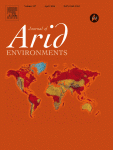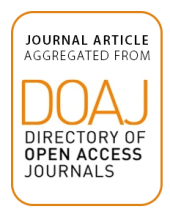/ library resources
Showing items 1 through 9 of 18.Land degradation is a widespread crisis, destabilizing nations and communities on a global scale. To be clear, food will be less plentiful (and thus more expensive) unless responsible land management and res- toration is given priority on the international political agenda.
This paper investigates how Borana pastoralists of southern Ethiopia have adapted resource use and livestock mobility practices amid multiple constraints including rising population, loss of rangeland to other pastoral communities and changing access rights, among others.
A large number of cities around the world today owe their land use growth to the rapid development of industrial areas. The spatial structure of industrial distribution in cities shape urban spatial morphology linking with land use, transportation, economic activities, and housing.
This paper describes various possibilities of the cities of futures considering various constraints and demand of society, environment and geography. The need for future cities arises because of the rapid growth in population and thereby causing a decline in the living standards.
During Vietnam’s transition from a socialist to a market economy, household’s property rights over agricultural land were considerably strengthened through a land certification program.
The importance of seed provisioning in food security and nutrition, agricultural development and rural livelihoods, and agrobiodiversity and germplasm conservation is well accepted by policy makers, practitioners and researchers.
Combining remotely sensed Moderate Resolution Imaging Spectroradiometer (MODIS) data with Bangladesh Household Income and Expenditure Survey (HIES) data, this study estimates losses in rainfed rice production at the household level.
The impact of agricultural practices on CO2 emissions from soils needs to be understood and quantified to enhance ecosystem functions, especially the ability of soils to sequester atmospheric carbon (C), while enhancing food and biomass production.
Small-scale irrigation is playing an important role in adapting to climate change, achieving food security, and improving household incomes.
Pagination
Land Library Search
Through our robust search engine, you can search for any item of the over 73,000 highly curated resources in the Land Library.
If you would like to find an overview of what is possible, feel free to peruse the Search Guide.






